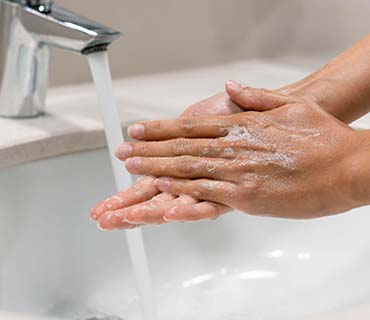Introduction:
Obsessive-Compulsive Disorder (OCD) is a mental health condition characterized by recurring, unwanted thoughts (obsessions) and repetitive behaviors (compulsions). One of the most common forms of OCD is associated with OCD cleanliness, where individuals experience intense fears about germs or contamination, leading to compulsive cleaning rituals. However, OCD is far more complex than just an obsession with cleanliness.
OCD cleanliness is just one manifestation of Obsessive-Compulsive Disorder, but it’s important to recognize that OCD affects people in various ways beyond hygiene. Individuals with OCD may also experience other forms of compulsions, such as repeatedly checking things, organizing items symmetrically, or engaging in mental rituals.
For those seeking Best OCD Treatment, consider visiting:
1. OCD Goes Beyond Cleanliness
While many associate OCD cleanliness with a constant need to clean, the disorder involves much more than that. Individuals with OCD may have obsessions unrelated to hygiene, such as fears of harming others or a need for things to be in perfect order. It’s crucial to recognize that cleanliness is just one potential aspect of a broader mental health condition.
2. Compulsions Stem from Anxiety
The cleaning rituals in OCD cleanliness are often driven by intense anxiety. A person with OCD may feel overwhelming fear of germs or contamination, leading them to engage in cleaning behaviors to ease their anxiety temporarily. However, these compulsions can become time-consuming and interfere with daily life.
3. Not All Cleaning Is Related to OCD
It’s important to differentiate between OCD-driven cleaning and normal cleanliness habits. While many people like to keep their surroundings clean, those with OCD cleanliness feel compelled to clean as a result of obsessive thoughts. This compulsion often becomes excessive, disrupting work, relationships, and well-being.
4. OCD Is Not Just About Hygiene
Though cleaning is a common manifestation, OCD can also include other compulsive behaviors like checking things repeatedly, arranging objects in a specific order, or mentally reviewing certain actions. The need for cleanliness is just one form of OCD, and not every individual with OCD exhibits this behavior.
5. OCD Can Lead to Avoidance Behaviors
In some cases, the fear of contamination can become so intense that individuals with OCD cleanliness may avoid certain places, objects, or situations altogether. This avoidance can limit their daily activities and quality of life. For example, they may avoid public spaces, refuse to touch objects without gloves, or isolate themselves in a controlled environment. For more information about OCD and related treatments, visit World Health Organization (WHO)
6. Therapies Help Manage OCD Symptoms
Cognitive-behavioral therapy (CBT) is one of the most effective treatments for managing OCD. It helps individuals challenge their obsessive thoughts and reduce compulsive behaviors. Exposure and response prevention (ERP), a specific type of CBT, is particularly helpful in addressing cleanliness-related compulsions. For more information about OCD and related treatments, visit Centers for Disease Control and Prevention (CDC)
7. OCD Awareness Is Essential
Understanding the complexities of OCD is crucial for both individuals living with the condition and those around them. Greater awareness can help reduce stigma and improve access to resources and treatment. If you or someone you know is struggling with OCD, it’s essential to seek professional help from a mental health specialist.
Conclusion:
Understanding the relationship between OCD cleanliness and mental health is crucial for recognizing the complexities of Obsessive-Compulsive Disorder. While cleanliness and hygiene are common obsessions, OCD affects individuals in many different ways, and compulsive behaviors are often rooted in anxiety. Raising awareness about OCD cleanliness, seeking appropriate treatment, and supporting those who struggle with it can significantly improve quality of life. If you or someone you know is facing challenges with OCD, professional help and therapies like CBT can make a profound difference in managing symptoms and leading a balanced life. For more information about OCD and related treatments, visit National Institute of Mental Health (NIMH)
By raising awareness about the complexity of OCD, including its connection with cleanliness, we can help individuals manage their symptoms and lead fulfilling lives.

